
Imagine it’s a perfect summer evening, and the smell of grilled food fills the air. You’re excited to use your gas grill. But when you open the lid, you see dirty, grimy grates. Don’t let this stop you from enjoying your barbecue! Let’s learn how to keep your grill clean and ready for use.
Whether you grill every day or just on weekends, keeping your grill clean is important. It ensures delicious meals and a grill that lasts longer. We’ll look at the best ways to care for your grill, making your neighbors jealous of your outdoor cooking skills.
Key Takeaways
- Regular cleaning after each use prevents rust and extends grill life
- Deep clean grates every 4-6 months for weekly use, annually for occasional use
- Different grate materials require specific cleaning methods
- Avoid wire brushes; opt for nylon brushes for safety
- Use natural cleaning solutions like baking soda and vinegar
- Apply vegetable oil after cleaning to prevent sticking and rusting
- Annual deep cleaning sessions may require overnight soaking
The Importance of Clean Grill Grates
Clean grill grates are key for great barbecues. They keep food safe, taste better, and make your grill last longer. Let’s see why keeping grates clean is important for your grilling.
Impact on Food Safety
Dirty grates can be dangerous. They can hold harmful bacteria that make you sick. Clean your grates every five to seven cooks to grill safely.
Effect on Flavor and Cooking Performance
Clean grates stop flavors from mixing between foods and help heat spread evenly. Use barbecue grate brushes after each use. This keeps your grilling better and your food tasting great.
Extending Grill Lifespan
Cleaning often stops your grill from rusting and corroding. Clean it monthly with special products for a deep clean. This keeps your grill working well, saving you money over time.
| Grate Material | Cleaning Frequency | Recommended Cleaning Method |
|---|---|---|
| Porcelain | After each use | Soft brush, hot soapy water |
| Cast Iron | After each use | Wire brush, oil after cleaning |
| Stainless Steel | Every 5-7 uses | Stainless steel brush, vinegar solution |
Remember, taking care of your grill is crucial for safe and tasty outdoor meals. Add these tips to your routine for the best grilling.
Understanding Different Types of Grill Grates
Grilling fans know the right grate type can change your cooking game. Let’s dive into the three main types: cast iron, porcelain-coated, and stainless steel grates.
Cast iron grates are known for holding heat well. They need to be seasoned to stop rusting and can last a long time with the right care. Porcelain-coated grates are easy to clean and spread heat evenly. Stainless steel grates are tough and don’t rust easily.
Each grate type has its own cleaning needs. Don’t use dish soap on cast iron grates often, as it can remove the seasoning. Be gentle when cleaning porcelain-coated grates to avoid chipping. Stainless steel grates can take a bit more cleaning but might change color over time.
| Grate Type | Heat Retention | Cleaning Ease | Durability |
|---|---|---|---|
| Cast Iron | Excellent | Moderate | High |
| Porcelain-Coated | Good | Easy | Moderate |
| Stainless Steel | Good | Moderate | High |
Knowing your grate type helps you pick the best cleaning method and care routine. This ensures your grill works well and lasts longer. Clean grates not only make your grilling better but also make your grill last longer.
Essential Tools for Cleaning Gas Grill Grates
Keeping your gas grill grates clean is key for tasty food and a long-lasting grill. Let’s look at the top grill cleaning tools and natural cleaners to make upkeep easy.
Grill Brushes and Scrapers
Grill brushes fight against grime. Pick brass or nylon bristles for a gentle yet effective clean. Scrapers remove tough residue without harming your grates. Remember, the right tool matters – use a brass brush on porcelain-coated grates to prevent scratches.
Cleaning Solutions and Natural Alternatives
Commercial cleaners are great, but natural options work well too. Try a mix of vinegar and baking soda for a green solution. This combo cuts through burnt food easily. For a deep clean, soak your grates in this mix overnight.
Protective Gear
Remember safety when cleaning your grill. Use heat-resistant gloves to protect your hands from heat and harsh chemicals. Safety glasses also shield your eyes from debris and cleaners.
| Grate Material | Recommended Cleaning Tool | Cleaning Frequency |
|---|---|---|
| Stainless Steel | Wire brush or aluminum foil | After each use |
| Cast Iron | Stiff brush, dry and oil after cleaning | After each use, season regularly |
| Porcelain | Soft-bristled brush or nylon scrubber | After each use, avoid metal tools |
With these key tools, you’re set to keep your gas grill grates clean and your food delicious.
How Do You Clean Gas Grill Grates: Step-by-Step Guide
Keeping your grill grates clean is key for tasty barbecue and a long-lasting grill. This guide will show you how to clean your grill grates. This way, your next cookout will be a hit.
Preheating the Grill
Begin by turning on your gas grill and heating it for 15 minutes with the hood closed. This step burns off residue, making cleaning easier. For charcoal grills, clean after you remove the briquettes.
Scrubbing Techniques
After it cools a bit, it’s time to clean your gas grill grates. Use a long-handled brush without bristles or a stiff nylon brush. For tough grime, spray Dawn® Platinum Power wash Dish Spray and wait 5-10 minutes. Then, scrub gently to protect the grate.
Rinsing and Drying
Rinse the grates well with water. Dry them with a paper towel or cloth. Make sure they are completely dry to prevent rust and get them ready for your next grilling.
- Clean stainless steel grates after each use
- Use baking soda, water, and soap for porcelain-coated grates
- Clean cast iron grates with high heat and brushing
- Replace grates if they rust through or pit
Regular cleaning saves time and effort. Deep clean every 4-6 months if you grill often, or once a year if you grill less. These tips will keep your grill in great shape for many years.
Deep Cleaning Methods for Stubborn Residue
Dealing with stubborn grill residue can be tough. To deep clean your grill and remove tough buildup, try these effective methods. For heavy grease, soak the grates in hot, soapy water or a vinegar-baking soda mix. This loosens grime, making scrubbing easier.
A powerful grill degreaser can tackle severe buildup. Apply it generously, let it sit for 40 minutes, then scrub away. For a natural approach, create a spray using equal parts water and white vinegar. This eco-friendly solution works wonders on stubborn residue.
Remember to rinse thoroughly after using any cleaning solution. This prevents chemical residue from affecting your food’s taste. For optimal results, deep clean your grill every 4-6 months if you use it frequently, or at least once a year for occasional grillers.
“Regular cleaning helps prevent rust, minimizes grime build-up, and maintains the grill in pristine condition.”
To maintain your grill between deep cleans, scrub the grates after each use. This simple habit prevents food particles from becoming stubborn residue. By following these tips, you’ll keep your grill in top shape, ensuring delicious meals every time you fire it up.
Maintaining Cast Iron Grill Grates
Cast iron grill grates are known for their excellent heat retention and long-lasting nature. They can handle high temperatures, making them ideal for grilling. However, they require special care to keep them in great condition. Let’s look at how to take care of these grates.
Seasoning Process
Seasoning your grill grates is crucial for cast iron care. Begin by washing the grates with warm water and drying them well. Then, apply a thin layer of vegetable oil, grapeseed oil, or bacon fat. Heat the grill to 400°F and let the grates season for 40 minutes. Do this 2-3 times before your first use to create a non-stick surface.
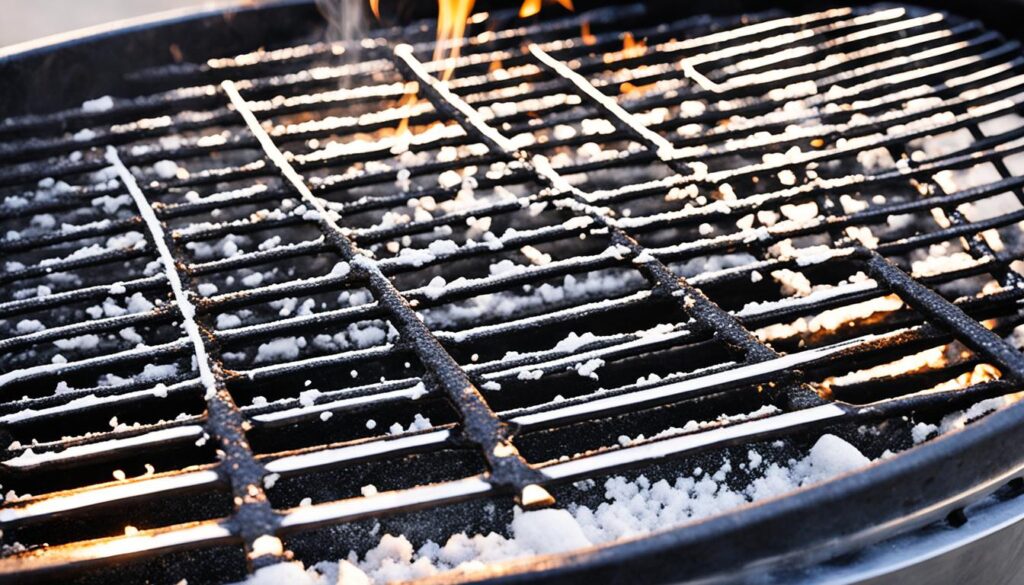
Rust Prevention
To stop grill rust, clean your grates after every use with a brush or scraper. Some people use half an onion for cleaning. After cleaning, apply oil to the grates. When storing, coat the grates in oil, wrap them in plastic, and cover the grill to keep out moisture.
Special Cleaning Considerations
Regular upkeep is key, but deep cleaning is needed once a year. Mix 2 cups of vinegar with 1 cup of baking soda, soak the grates overnight in a sealed bag, then rinse and scrub off any food. Dry them well to prevent rust. Some suggest using mild soap for this clean, but always re-season afterward.
| Cleaning Method | Frequency | Steps |
|---|---|---|
| Regular Cleaning | After each use | Scrape, brush with oil |
| Deep Cleaning | Annually | Soak in vinegar/baking soda, scrub, dry, re-season |
| Soap Cleaning | As needed | Wash with mild soap, dry thoroughly, re-season |
Cleaning and Care for Porcelain-Coated Grates
Porcelain grill grates are great for keeping heat in and resisting rust. They need to be cleaned carefully to stay in good shape. It’s important to use non-abrasive cleaners to keep them working well.
When cleaning porcelain grill grates, don’t use metal or wire brushes. Instead, go for soft bristle or nylon brushes. This gentle cleaning method stops the porcelain from chipping or getting scratched, which could lead to rust.
For tough grime, try this trick:
- Heat your grill to 600 degrees, then turn it off.
- Place a heat-resistant container of water on the grates.
- Close the lid and let it steam for 30 minutes.
- Scrub the grates with a silicone sponge to remove buildup.
For a deeper clean, mix baking soda, water, and dish soap. Apply it carefully, focusing on tough spots. Rinse well and dry to avoid water spots.
Regular, gentle cleaning keeps your porcelain grill grates in top shape. If you see chips or rust, it might be time to replace them. This ensures your grill works well and keeps your food safe.
Stainless Steel Grate Maintenance
Keeping your stainless steel grill in top shape is key. Clean it after each use to stop carbon buildup and make it last longer. Let’s look at the best ways to keep your grates looking great.
Preventing Discoloration
Clean your grates right after grilling to stop discoloration. Heat your grill to 500°F for 10-15 minutes before cleaning. This makes it easier to remove tough stains.
Dealing with Tough Stains
For hard stains, try the tinfoil trick. Put foil over the grates and heat to 500°F. This loosens the stains well. For really tough stains, soak the grates in hot water and scrub gently.
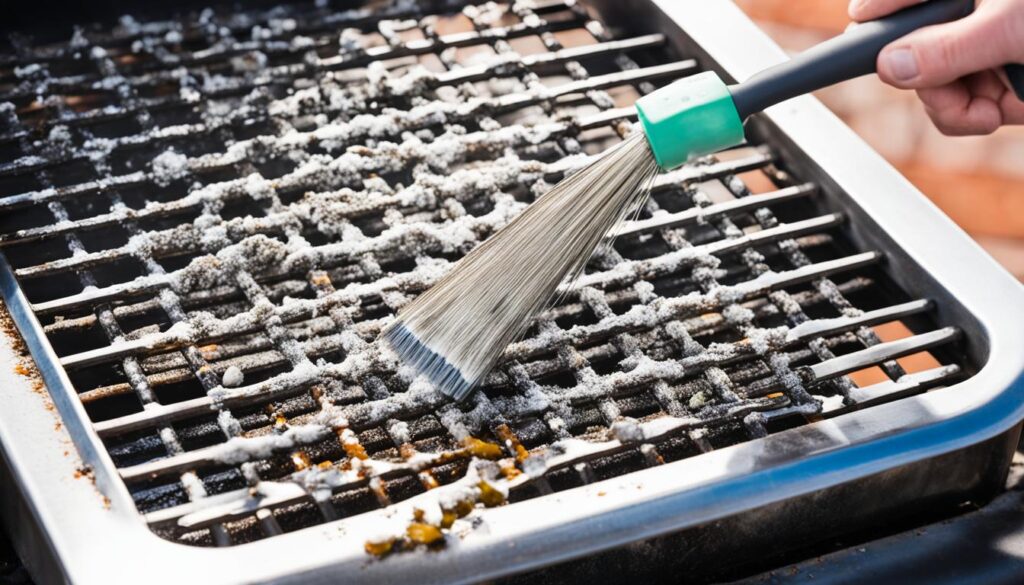
Polishing Techniques
To make your grill grates shine, mix water and white vinegar as a cleaner. Don’t use harsh chemicals that can harm the steel. Remember, a patina on your grids is normal and protects against rust.
| Cleaning Frequency | Method | Benefits |
|---|---|---|
| After each use | Brush and preheat | Prevents buildup |
| Every 4-6 months | Deep clean | Removes tough stains |
| As needed | Polish with vinegar solution | Restores shine |
Follow these tips to keep your stainless steel grates clean, working well, and looking good for many years.
Preventive Measures for Easier Cleaning
Keeping your gas grill clean is easy with a few simple tips. By following some maintenance advice, you can avoid buildup and make cleaning simple. Always brush the grates while they’re warm after each use. This removes food bits before they stick, making cleaning easier later.
Apply a thin layer of cooking oil to the grates before grilling to prevent food from sticking. This not only makes cleaning easy but also adds flavor to your food. Using a drip pan to catch grease and food bits is also a good idea. It keeps the grill bottom clean and reduces flare-ups during cooking.
Remember to cover your grill when it’s not in use. This protects it from rain, dust, and other elements that can cause rust and damage. A covered grill can last for years, with some grills working well even after six years. By following these tips, you’ll spend less time cleaning and more time enjoying your grilled meals.

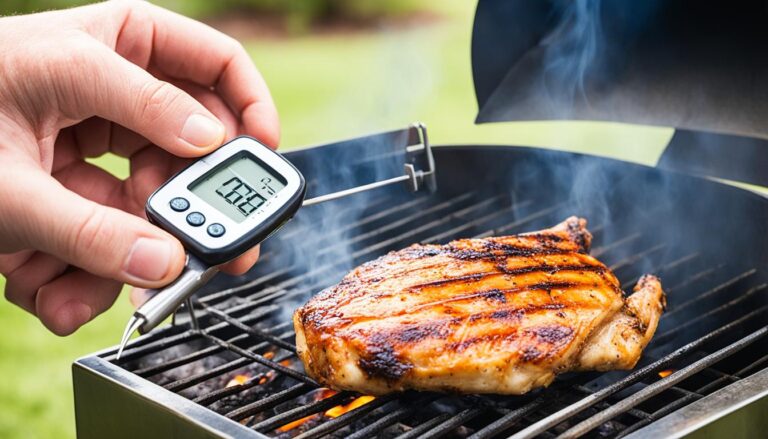
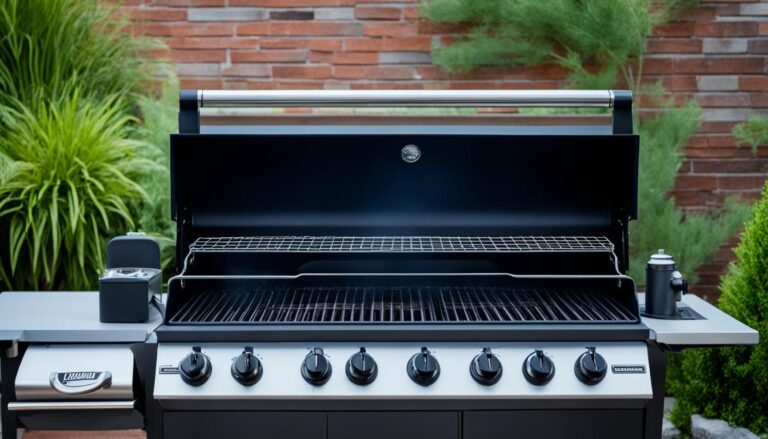
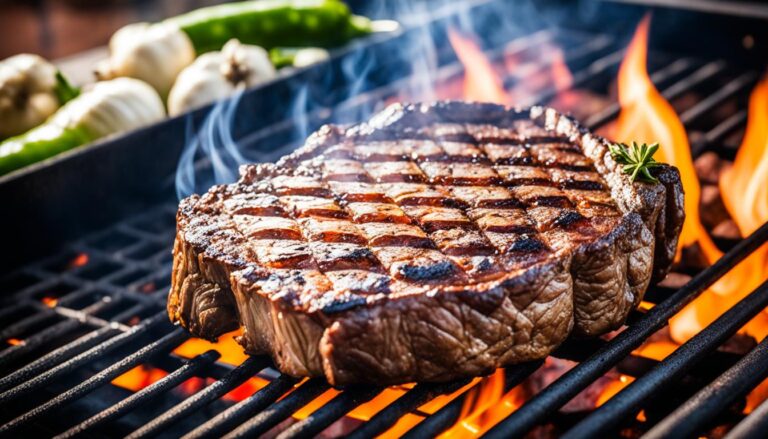
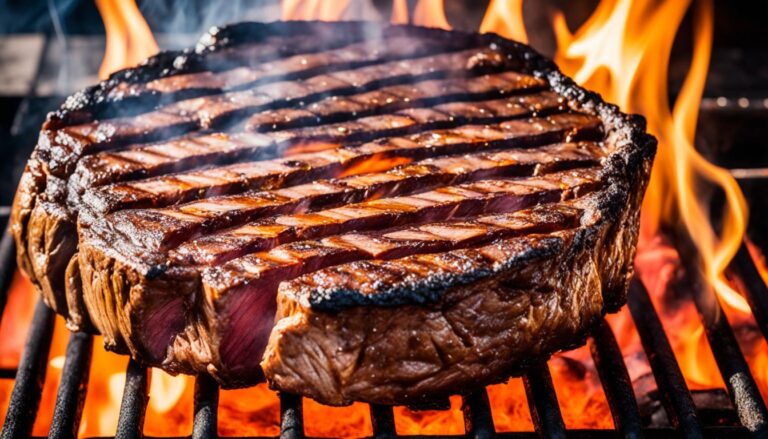

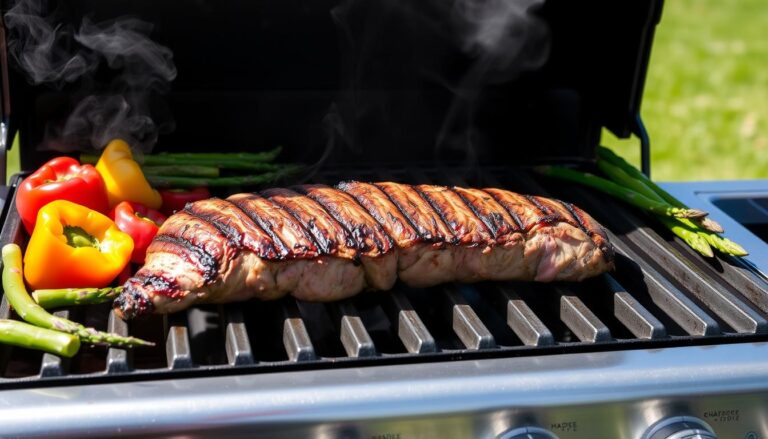
One Comment